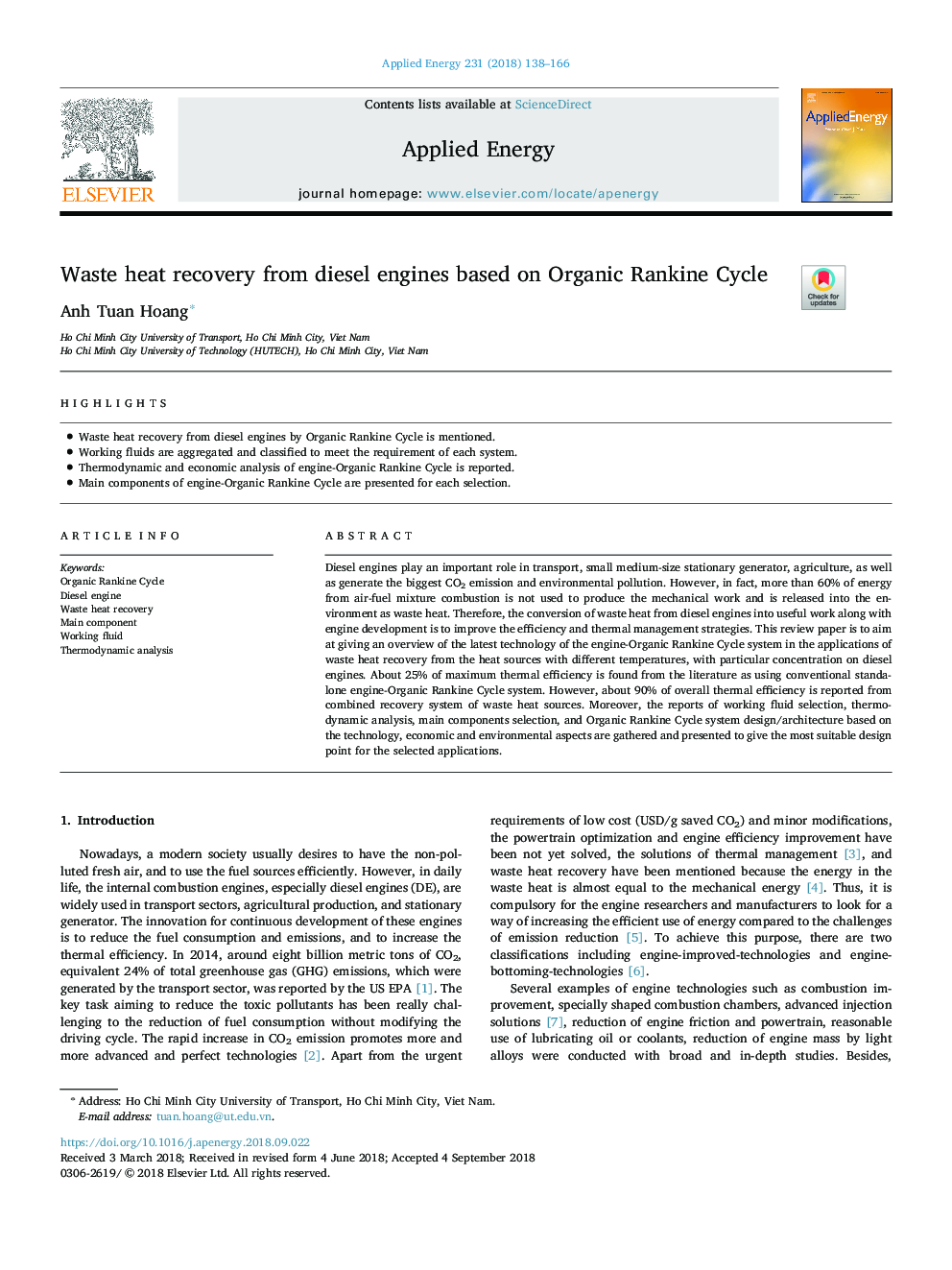| Article ID | Journal | Published Year | Pages | File Type |
|---|---|---|---|---|
| 10225228 | Applied Energy | 2018 | 29 Pages |
Abstract
Diesel engines play an important role in transport, small medium-size stationary generator, agriculture, as well as generate the biggest CO2 emission and environmental pollution. However, in fact, more than 60% of energy from air-fuel mixture combustion is not used to produce the mechanical work and is released into the environment as waste heat. Therefore, the conversion of waste heat from diesel engines into useful work along with engine development is to improve the efficiency and thermal management strategies. This review paper is to aim at giving an overview of the latest technology of the engine-Organic Rankine Cycle system in the applications of waste heat recovery from the heat sources with different temperatures, with particular concentration on diesel engines. About 25% of maximum thermal efficiency is found from the literature as using conventional standalone engine-Organic Rankine Cycle system. However, about 90% of overall thermal efficiency is reported from combined recovery system of waste heat sources. Moreover, the reports of working fluid selection, thermodynamic analysis, main components selection, and Organic Rankine Cycle system design/architecture based on the technology, economic and environmental aspects are gathered and presented to give the most suitable design point for the selected applications.
Related Topics
Physical Sciences and Engineering
Energy
Energy Engineering and Power Technology
Authors
Anh Tuan Hoang,
